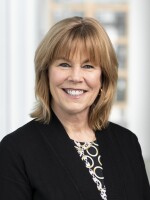Samuel Gbarzeki is fed up.
"How can we cope?" he asks.
The university professor, who teaches English to freshmen and sophomores, has been out of work since July when Liberia's government suspended schools because of the Ebola outbreak.
"Ebola is very, very dangerous because it kills and has no boundaries," he says. "But people don't know what to do. They go to bed hungry because jobs have stopped."
The trim man is wearing a tan baseball cap, pressed khaki shorts and a spotless white T-shirt. He will admit to being "something over 60 years old."
Gbarzeki says Ebola has hit at a particularly bad time for Liberians. It's one of the world's 10 poorest countries. But things had started to look up. A little more than a decade after a brutal civil war had brought the impoverished nation to its knees, authorities say Liberia was beginning to stabilize. The gross national income, for example, has been on a slow but steady upward trend.
Then came the outbreak. Unemployment has soared. Today, Liberia has become a nation of peddlers.
Gbarzeki is standing among a small crowd in front of the Daily Talk news board. The board, which stands 10 feet high and 15 feet wide on busy Tubman Boulevard in Monrovia, is an innovative and low-tech approach to sharing news in a nation where many don't own a television or a radio and can't afford a newspaper.
The board is the brainchild of Alfred Sirleaf, a journalist who created it in 2000, three years before the war ended. He updates the blackboard by hand several times a week, writing headlines in white chalk. A river of people flows past including pedestrians, laborers and multiple vendors of food, clothes, clocks, eyeglasses, kola nuts, shoes. Many stop to look at the day's news.
The headlines on Dec. 2 include: "AFTER KILLING NEARLY 6,000 PEOPLE IN AFRICA, DEATH RATE DROP WITH EBOLA ON THE RUN; DUE TO KILLER EBOLA FEAR SUPREME COURT HALTS ELECTIONS, ORDERS CANDIDATES TO STOP ACTIVITIES; CRIMINALS ENTER PRES SIRLEAF'S COMPOUND FROM BEACH SIDE STEAL WINDOW GLASSES.
Gbarzeki is stunned by this last bulletin.
"This is very astonishing," he says. "Because a president is supposed to have maximum security. If criminals can do this, it's very astonishing"
Gbarzeki says he is not a daily visitor but has been stopping by the board recently for updates on elections due to be held Dec. 16. Liberia's Supreme Court is reviewing a petition that the elections be postponed due to Ebola. But President Ellen Johnson-Sirleaf's government wants them to go ahead, even though it has banned mass gatherings.
Gbarzeki reflects the opinion of many standing around him when he says he doesn't understand the logic.
"According to our president, because of Ebola we should not assemble," he says. "Now they are saying elections should be held."
Gbarzeki says life was hard before Ebola.
Now?
"If Ebola closes everything, where do people get money to feed their family?," he asks. "People can hardly put food on the on table for their family. We are hurt."
Copyright 2021 NPR. To see more, visit https://www.npr.org.


